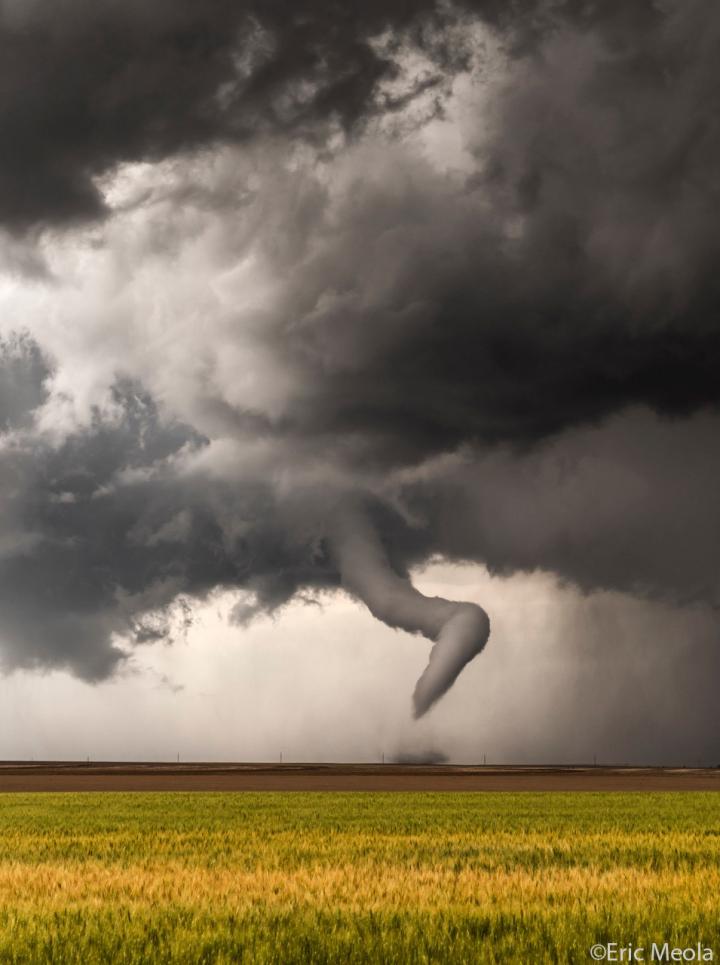
Credit: Eric Meola
In this year of extreme weather events — from devastating West Coast wildfires to tropical Atlantic storms that have exhausted the alphabet — scientists and members of the public are asking when these extreme events can be scientifically linked to climate change.
Dale Durran, a professor of atmospheric sciences at the University of Washington, argues that climate science need to approach this question in a way similar to how weather forecasters issue warnings for hazardous weather.
In a new paper, published in the October issue of the Bulletin of the American Meteorological Society, he draws on the weather forecasting community’s experience in predicting extreme weather events such as tornadoes, flash floods, high winds and winter storms. If forecasters send out a mistaken alert too often, people will start to ignore them. If they don’t alert for severe events, people will get hurt. How can the atmospheric sciences community find the right balance?
Most current approaches to attributing extreme weather events to global warming, he says, such as the conditions leading to the ongoing Western wildfires, focus on the likelihood of raising a false alarm. Scientists do this by using statistics to estimate the increase in the probability of that event that is attributable to climate change. Those statistical measures are closely related to the “false alarm ratio,” an important metric used to assess the quality of hazardous weather warnings.
But there is a second key metric used to assess the performance of weather forecasters, he argues: The probably that the forecast will correctly warn of events that actually occur, known as the “probability of detection.” The ideal probability of detection score is 100%, while the ideal false-alarm rate would be zero.
Probability of detection has mostly been ignored when it comes to linking extreme events to climate change, he says. Yet both weather forecasting and climate change attribution face a tradeoff between the two. In both weather forecasting and climate-change attribution, calculations in the paper show that raising the thresholds to reduce false alarms produces a much greater drop in the probability of detection.
Drawing on a hypothetical example of a tornado forecaster whose false alarm ratio is zero, but is accompanied by a low probability of detection, he writes that such an “overly cautious tornado forecasting strategy might be argued by some to be smart politics in the context of attributing extreme events to global warming, but it is inconsistent with the way meteorologists warn for a wide range of hazardous weather, and arguably with the way society expects to be warned about threats to property and human life.”
Why does this matter? The paper concludes by noting: “If a forecaster fails to warn for a tornado there may be serious consequences and loss of life, but missing the forecast does not make next year’s tornadoes more severe. On the other hand, every failure to alert the public about those extreme events actually influenced by global warming facilitates the illusion that mankind has time to delay the actions required to address the source of that warming. Because the residence time of CO2 in the atmosphere is many hundreds to thousands of years the cumulative consequences of such errors can have a very long lifetime.”
###
For more information, contact Durran at [email protected].
Media Contact
Hannah Hickey
[email protected]
Original Source
https:/
Related Journal Article
http://dx.




